View all filters
Clear
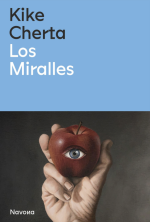
I Miralles
Translated from
Spanish
to
Italian
by Martino Gandi
Written in Spanish by Kike Cherta
9 minutes read

Uccelli che cantano il futuro
Translated from
Spanish
to
Italian
by Ilaria Garelli
Written in Spanish by Alejandro Morellón Mariano
5 minutes read
Il raduno
Translated from
Romanian
to
Italian
by Andreaa David
Written in Romanian by Alexandru Potcoavă
9 minutes read
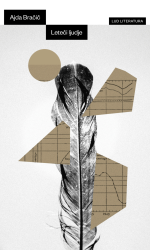
Non c’è nessuno come te (Soggetti in volo)
Translated from
Slovenian
to
Italian
by Giorgia Maurovich
Written in Slovenian by Ajda Bračič
8 minutes read
L'Impero Romano e la crisi dei rifugiati (370-410 d.C.)
Written in Italian by Fabio Guidetti
9 minutes read
Pennarello
Translated from
Serbian
to
Italian
by Sara Latorre
Written in Serbian by Jasna Dimitrijević
7 minutes read
I bambini scrittori
Translated from
Portugese
to
Italian
by Francesca Leotta
Written in Portugese by José Gardeazabal
7 minutes read
Per non vederti
Translated from
Portugese
to
Italian
by Francesca Leotta
Written in Portugese by Valério Romão
10 minutes read
Calcare
Translated from
Dutch
to
Italian
by Olga Amagliani
Written in Dutch by Lisa Weeda
8 minutes read

Famous Blue Raincoat
Translated from
Spanish
to
Italian
by Ilaria Garelli
Written in Spanish by Aixa De la Cruz Regúlez
9 minutes read
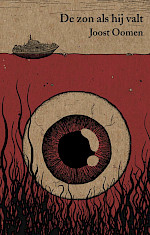
Il sole quando cade
Translated from
Dutch
to
Italian
by Antonio De Sortis
Written in Dutch by Joost Oomen
8 minutes read
Elogio dell’uragano
Translated from
Spanish
to
Italian
by Ilaria Garelli
Written in Spanish by Alejandro Morellón Mariano
4 minutes read
Anche se non puoi vederne che una goccia
Translated from
Dutch
to
Italian
by Antonio De Sortis
Written in Dutch by Rebekka de Wit
9 minutes read
Nemmeno un minuto Portasar
Translated from
Romanian
to
Italian
by Maria Alampi
Written in Romanian by Cătălin Pavel
9 minutes read
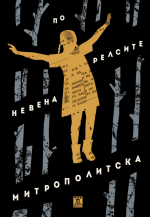
Lungo i binari
Translated from
Bulgarian
to
Italian
by Giorgia Spadoni
Written in Bulgarian by Nevena Mitropolitska
10 minutes read
L’Impero romano in 100 date
Written in Italian by Fabio Guidetti
8 minutes read
Albero mostro bambino albero
Translated from
Spanish
to
Italian
by Valeria Parlato
Written in Spanish by Mariana Torres
9 minutes read
Esmeralda
Translated from
Portugese
to
Italian
by Elisa Rossi
Written in Portugese by Luis Brito
7 minutes read
Domani
Translated from
Portugese
to
Italian
by Elisa Rossi
Written in Portugese by Patrícia Patriarca
8 minutes read
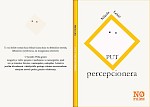
Fiori di loto che si chiudono (quando ci si entra) (La via del perceptionist)
Translated from
Serbian
to
Italian
by Katarina Mitić
Written in Serbian by Nikola Lekić
8 minutes read